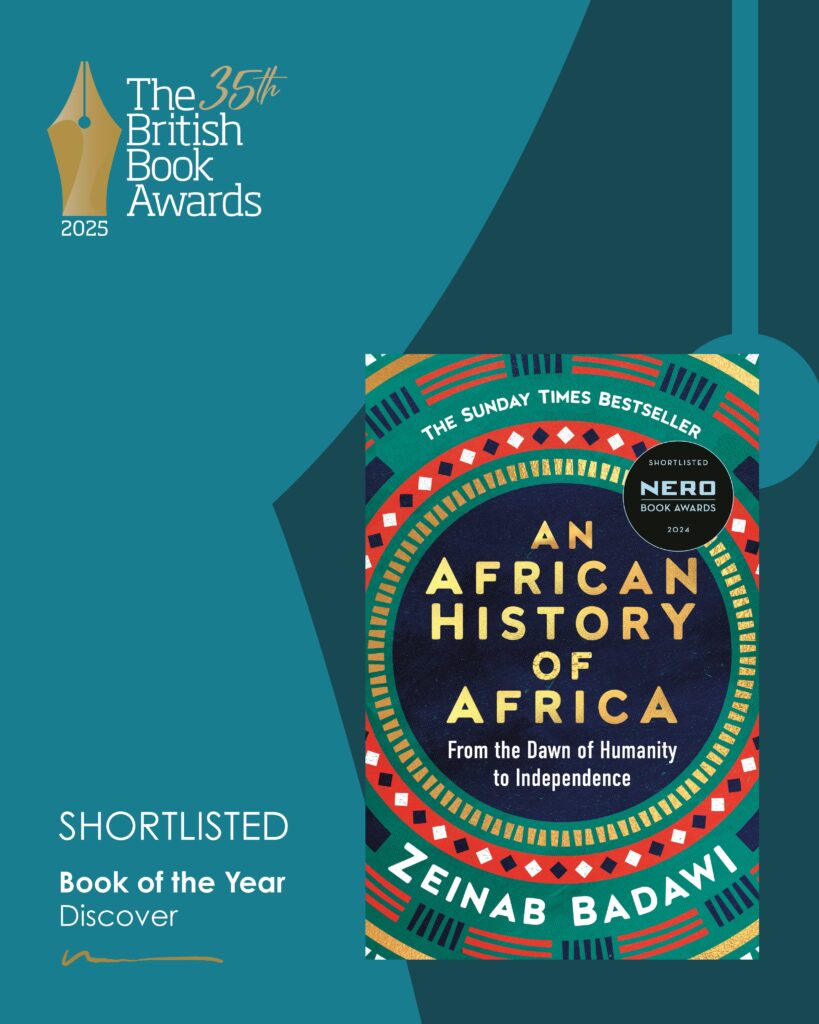For too long, Africa’s history has been told through the eyes of outsiders—colonizers, explorers, and historians who framed the continent through the lens of conquest and suffering. In her groundbreaking book, An African History of Africa: From the Dawn of Humanity to Independence, journalist and historian Zeinab Badawi sets out to reclaim this narrative.
The book by Zeinab Badawi is a compelling narrative that reclaims Africa’s rich and diverse history from an African perspective. Spanning from the origins of humanity to the continent’s journey toward independence, Badawi’s work challenges Eurocentric narratives and offers a panoramic view of Africa’s past, told through the voices of its people.
With meticulous research and a deeply personal perspective, Badawi takes readers on an epic journey—from the birth of humanity in Africa’s ancient landscapes to the hard-fought battles for independence. This is not just a history book; it is a corrective, a celebration, and a long-overdue affirmation of Africa’s central role in world history.

Why This Book Matters
Badawi’s work is revolutionary because it centers African voices. As she writes:
“This is not a history of Africa shaped by the European gaze, but one told by Africans themselves.”
For centuries, African history was distorted—either ignored or reduced to simplistic tales of “tribes,” slavery, and colonialism. Badawi dismantles these myths, revealing a continent of sophisticated civilizations, scientific advancements, and political innovation.
The Cradle of Humanity
Africa’s significance as the birthplace of humanity is a central theme in Badawi’s work. The continent is home to some of the oldest human fossils, dating back millions of years, underscoring its pivotal role in the story of human evolution. By highlighting this, Badawi emphasizes that Africa’s history is not peripheral but central to the human story.
Ancient Civilizations and Empires
Badawi delves into the grandeur of Africa’s ancient civilizations, such as the Kingdoms of Kush and Aksum, and the empires of Mali, Songhai, and Great Zimbabwe. These societies were characterized by advanced political systems, architectural marvels, and rich cultural traditions. For instance, the city of Timbuktu in Mali was a renowned center of learning, housing vast libraries and attracting scholars from across the Islamic world.
Remarkable African Women
A notable aspect of Badawi’s narrative is her focus on influential African women who played pivotal roles in their societies. Figures like Queen Njinga of Ndongo and Matamba, Yaa Asantewaa of the Ashanti Empire, and Queen Kahina of the Berber tribes are highlighted for their leadership and resistance against colonial and foreign invasions. These stories challenge patriarchal narratives and showcase the agency of women in African history.
Colonialism and Resistance
The book does not shy away from the traumatic periods of colonization and the transatlantic slave trade. Badawi examines the complexities of these eras, acknowledging the suffering endured while also highlighting the resilience and resistance of African communities. She brings to light the stories of those who fought against colonial powers, preserving their cultures and laying the groundwork for future independence movements. More info
The Path to Independence
The journey toward independence is portrayed as a testament to African resilience and determination. Badawi chronicles the various liberation movements across the continent, emphasizing the collective efforts that led to the dismantling of colonial rule. She also addresses the challenges faced in the post-independence era, offering insights into the complexities of nation-building and governance.
A Personal and Accessible Narrative
What sets Badawi’s work apart is her ability to weave scholarly research with personal anecdotes and reflections. Her narrative style is engaging and accessible, making complex historical events relatable to a broad audience. By incorporating voices from diverse African communities, she ensures that the history presented is not monolithic but reflective of the continent’s rich diversity. more info
An African History of Africa is more than a historical account; it is a reclamation of identity and a celebration of Africa’s enduring legacy. Badawi’s work serves as a vital corrective to centuries of misrepresentation, offering readers an opportunity to understand Africa through the lens of its people. As Badawi writes:
“Africa’s past was stolen, its present misunderstood, and its future underestimated. This book is a step toward taking it all back.”
For anyone seeking to unlearn colonial myths and discover Africa’s true legacy, An African History of Africa is indispensable. It is a must-read for anyone seeking to appreciate the depth and breadth of African history.SomeBeans+4The Guardian+4Foreign Affairs+4

